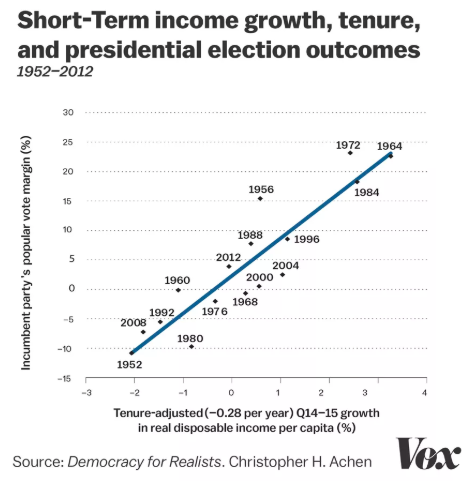Last Thursday to Saturday was the Frontiers of Democracy conference, the thirteenth of these annual gatherings at Tisch College. Our theme was nonviolence, because I believe that we are entering a new phase of political violence, with a real possibility that the presidency will be an instigator in 2025. I argue that we must develop skills, strategies, coalitions, organizations, and plans for large-scale, broad-based nonviolent resistance.
Rev. James M. Lawson Jr., had died the previous week at age 95. I’ll re-share a video of an interview that I was privileged to conduct with him and Ken Wong in 2022. His name will be a blessing.
This interview reinforces some points that I would emphasize today.
- Nonviolence is not the absence of violence–not a decision to refrain from using violent methods. It is a powerful alternative, with a record of success. One of our panelists at Frontiers was Maria Stephan, who has worked with Erica Chenoweth to show that nonviolent civil resistance movements often win.
- Protest is not the essence of nonviolent resistance. Protest actions can be helpful for announcing the presence of an organized movement, but most of a movement’s impact comes from boycotts, strikes, get-out-the-vote, popular education, work inside institutions, and so on. In the interview, Rev. Lawson says, “The march may the weakest tactic, not the strongest.”
- Americans have by no means forgotten nonviolent strategies. It is interesting that neither proponents nor critics of Black Lives Matter are prone to label it a nonviolent movement, but it has been that. I don’t only mean that the vast majority of BLM actions have been nonviolent but also that BLM leaders have trained and planned for nonviolence. In fact, BLM has been the largest nonviolent movement in US history and has been associated with a lower amount of collateral violence than the classic Civil Rights Movement. (Then again, it is impossible to prevent all violence, which is an unreasonable expectation.) BLM is just one of several recent or current nonviolent movements.
I would add some points that may not be as explicit in that interview.
First, nonviolence is the only way that most people are willing to engage, particularly in a society that offers some civil and political rights and where political violence is below epidemic levels. The only way to build really broad-based movements (at least outside of dictatorships and civil wars) is to be nonviolent.
Second, at large scales, nonviolence requires organization. One thing we learned from the #Resistance in 2016 is that Americans have good skills for expressing their views and finding allies, but underdeveloped skills for building large and accountable organizations and coalitions.
Particularly if Donald Trump wins in November, the opposition will have no obvious leader. There is a lot of talent in the Democratic Party, but it will not be clear who carries the party’s mantle. Besides, many active opponents of the Trump Administration will not be committed Democrats. Much of the opposition will arise in civil society, in faith communities, perhaps in labor, in media and culture, on the far left, among some conservatives, and perhaps among some businesses. Only some opponents will appreciate the Democratic Party or want to use strategies that involve legislation and elections. Leaders will arise in various sectors and constituencies, and they may or may not cohere.
The role of apex leaders is easily exaggerated. Usually, they are symbols rather than actual causes of change (or of stability). Still, people like you and me will have to decide what to do in the absence of a widely recognized leader, unless one surprises us by emerging quickly. That situation creates specific kinds of challenges for coordinating large-scale action. Who will invite representatives of the aligned small organizations in a given state to a statewide convention? How will that convention make decisions? If there is a big march in Washington, who will determine the speaker list? How can you influence those decision-makers?
If Trump wins, I forecast bitter recriminations and divisions among people who are against him. Regular Democrats will be furious that radicals and others voted for third-party candidates, stayed home or (at best) failed to make the case for the Democratic ticket. Many others will be equally angry at the Democratic Party, for a variety of reasons.
Debate and ideological diversity are good. But intense intramural hostility could be problematic, especially if it soaks up energy or encourages factions to compete for attention by doing things that also alienate key constituencies.
I just finished reading Jonathan Healey’s The Blazing World: A New History of Revolutionary England (recommended) and David Cannadine’s Victorious Century: The United Kingdom, 1800-1906 (medium-good). Gross generalizations from any chapters of history are risky, but I would venture these claims:
- Large public majorities have a decent chance of getting their way, even when the political system is highly unequal.
- Elite minorities have a good chance of dominating, if they control the levers of power.
- Activated minorities that lack power may attract attention and leave their mark on history, but they will fail unless they grow into majorities.
If Trump wins, he will represent a minority with his hands of the levers of power. Such a faction can be defeated by a broad majority (particularly since this leader is undisciplined, lazy, and chaotic). But to build a majority requires a specific set of skills and values, including a genuine desire to listen across differences, a willingness to choose winnable battles, and a nuts-and-bolts understanding of nonviolent organizing.
Now is a good time to study, train, and plan.
See also nonviolence in a time of political unrest; BLM protests and backlash; the value of diversity and discussion within social movements; preparing for a possible Trump victory.
The post nonviolence at the frontiers of democracy appeared first on Peter Levine.

